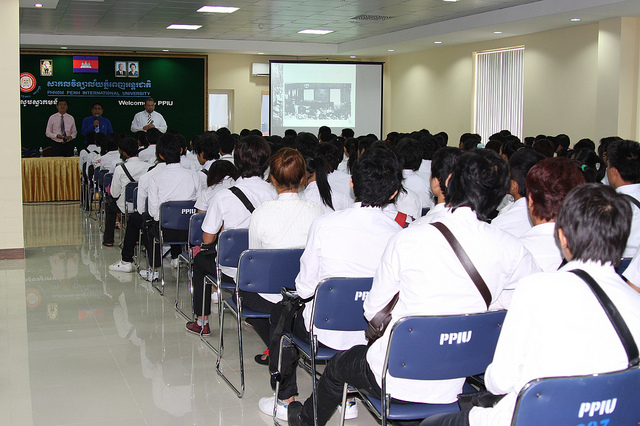Property Seminars – How to tell if a seminar is a scam – Beware
updated 4th October 2016
Classic signs of property investment scams
- Heavy marketing of the properties away from the area where the properties are located
- Heavy emphasis on tax advantages of buying this type of property
- No or low deposit purchase offers
- Use of high growth and limited supply statistics
- Sales presentation contains positive press clippings on the area
- Properties appear cheap in comparison to the area in which the target buyers live
- Sale prices are stated as ‘non-negotiable’
- Travel and accommodation at reduced rates is offered to prospective buyers
- Sales data (inflated) is used to justify the great value of the properties being offered
- Flow charts and computer ‘projections’ are shown to prospective buyers
- Urgency is used to encourage hasty decisions. Hurry! Selling fast!
- Words such as ‘wealth’, ‘retirement’, ‘secure your future’ are liberally used
- Fear of poverty is created by the marketing and the salespeople
- The properties are all similar – multiples of identicals
- ‘Investors’ make up the bulk of the buyers
- Finance is readily available with a ‘respected’ lending institution
- Recommendations are made to supposedly knowledgeable lawyers
- Credibility is created with a real estate book, typically Jan Somers, to support their case
- All those involved in the marketing are located in the same area (often the same building)
Source: Neil Jenman, from his forthcoming book, STITCHED!
Get rich quick?
The lure of big money investment secrets and priceless hints and tips are hard to resist, but some property seminar promises could turn out to bring more pain than profit. Jane Howdle reports

Or will it? According to Angelo Piazzetta, CEO, The Property School, bold claims like these should have you running in the opposite direction – and definitely not parting with your cash.
“To come out and say ‘I can make you mega-millions’, really doesn’t look right,” he says. “When they say, ‘come and hear from a $5 million property investor,’ it’s not always clear if it’s $5m of ownership or $5m of debt? They could easily have $4.9m worth of debt.”
In Piazzetta’s view, to promote property as a one-size-fits-all money-making venture is ridiculous because it doesn’t work. “At the end of the day, what they’re trying to do is get people to buy one of their developments, invest in their schemes or buy their books and tapes.”
But for many investors, the lure of these amazing offers is simply too appealing to resist, however dubious they may seem.
“They’re very clever on how they draw people in,” says ethics campaigner Neil Jenman. “I’ve seen the tricks used on people at seminars and I’ve seen people rush forward with their credit cards, pushing each other aside to sign up.”
The word of law
While financial planners have to declare their investment holdings and qualifications before they offer advice, there are no such regulations in the property industry.
Legendary Melbourne spruiker Henry Kaye has famously conned many people via his National Investment Institute (NII) courses, which he claimed (falsely) were endorsed by the Australian Securities and Investment Commission (ASIC). NII has since gone into administration, and Kaye continues to face charges from ASIC.
As a result of all the publicity surrounding Kaye, Jenman says many dodgy seminar organisers have now gone underground, but they’ve certainly not gone out of business.
“A lot of them have moved away from advertising in magazines and newspapers; they do it through gathering mailing lists and e-mail addresses,” says Jenman. “When you go to their websites most of them have ‘would you like a free copy of ‘The seven great ways that you can get rich by Tuesday’? Just put your e-mail address in here’. That’s a big change.”
Jenman says victims of these cons have a lot of rights but they don’t always use them or they don’t realise that they even have any.
Jenman urges victims of property spruikers to make a lot of noise and stand up for the rights they do have. “If you don’t yell, you’ve got no hope. If people remain silent or they act polite they’re going to get nowhere. You’ve got to be really strong with them. They know most people aren’t prepared to be that strong.”
While the industry may be unregulated at present, the forthcoming federal election may bring change, Piazzetta explains. “The current government has said that if they retain power it’ll be business as usual, whereas the opposition has said that if they get elected they’ll regulate property investment.
“Every financial planner would have to get accredited; that’s great, because it weeds out all those sorts of people out of the industry. Then they’d have to stand by the statements that they make.”
Avoid being a push-over
Paul Giezekamp, founder, Property Secrets, says he felt “a lot of pressure” to sign up for expensive extras such as bus trips when he was attending seminars. “It was very difficult to leave without going for another interview or signing up for a $5,000 training weekend,” he says.
Giezekamp warns that it’s the one-off seminars that should really set the alarm bells ringing, because once they’ve stung you, you won’t see them again until next year – and then they’ll be marketing it in a different way.
“You’ve really got to be careful,” he says. “If you go in expecting that everything’s going to be above board and transparent, then you’re going to be disappointed.”
Greg Tanzer, CEO, ASIC advises seminar-goers to think very carefully before signing up. “If there’s a high cost involved, you do have to wonder why that person is making money out of running seminars rather than using these hidden secrets to make the money themselves out of property.”
Tanzer also warns seminar-goers to be wary of rent guarantees, as they’re only as good as the person that gives them – and if they go out of business, your guarantee’s not worth a thing.
“The most tragic stories are where people put all their money into that particular investment – or more money than they’ve even got,” he says. “Most good investment advisors will tell you that it’s a very good strategy to spread your investments across different asset classes.”
Of course, the difficulty for anyone interested in attending a seminar is that the headline-grabbing promises of extreme wealth are more appealing than the more realistic tag lines of the often more legitimate organisations.
“There are seminars that you can go to that are put on by nice people that have good intentions and that will lead you to success,” says Jenman. “The difficulty is that those seminars are generally so bland in their marketing that people aren’t inspired to go along to them. If only the honest people could have better marketing flair.”
Do your homework
Avoiding the dodgier side of the seminar scene isn’t so hard if you do your homework, according to the experts.
“People need to do their own research and they have to be responsible for their own actions,” says Giezekamp, who believes there’s no excuse for falling foul of spruikers in 2007. “If it was 30 years ago, then you couldn’t blame people because there was no education. For people buying the DVDs and everything else – they really only have themselves to blame. If they see something that isn’t right they need to report it, but they need to do a bit of research first.”
Giezekamp recommends investors follow these 15 guidelines to avoid being stung by a scammer:
- Call/search the website of the Department of Fair Trading to find out about this company/coach
- Check if they have the valid licences for the services they sell
- Ask how much coaching costs. Some coaches in the past have asked for ridiculous amounts like $25,000 or higher. Run a mile if this is the case
- Do they run seminars? How much do they cost? Anything more than $50 is a rip off
- Do they run property day trips? How much do they cost? Anything more than $50 is also a rip off
- Do they run premium property coaching weekends away? How much do they cost? Anything more than $100 is a rip off
- Do they buy/own property where they are telling you to invest?
- What’s their customer support like, low level (DVDs or books) or high level (actually speak to a consultant)?
- Do they have an office?
- Ask how they make their money, ie, commission structures. Get something in writing
- How big is their company?
- How many staff do they have?
- How long has the business been going?
- Do a name search of the coach/club on Google
- Do a name search of the property coach on RP Data. This will show how many properties they actually have. If they buy through trusts, ask for their trust names and do the same search
As for the people who believe the hype and want to make a million overnight, Giezekamp has no time for them. “There’s nothing you can do for those people,” he says. “They’re impatient. They want everything done yesterday and they don’t want to do the work for it.”
This article has been republished with permission from Your Investment Property magazine. Try our Loan Repayment Calculator and find the best repayment strategy for you.


